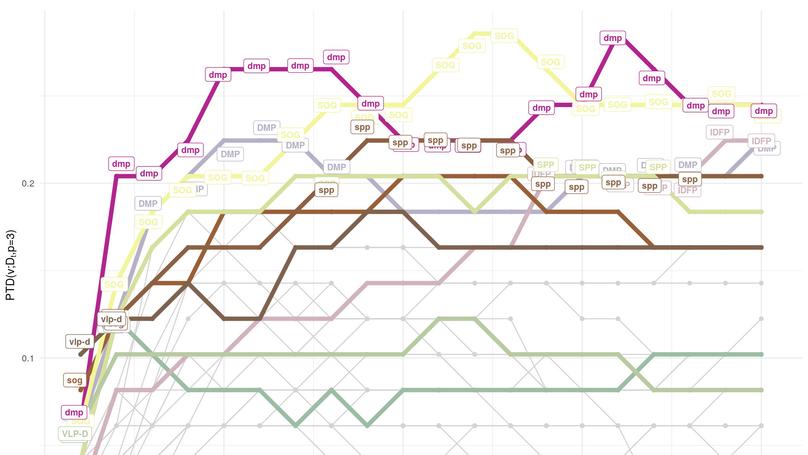Biography
I am currently a Junior Assistant Professor at the Faculty of Economics and Management at the Free University of Bozen-Bolzano (Italy). Previously, I held the same position in the Department of Mathematics at the University of Genoa (IT).
I develop statistical methods for the analysis of structured data, such as networks, functional, high-dimensional, and circular data, with a focus on robustness and, possibly, their geometry.
Download my CV.
- Robust Statistics
- Statistics of structured data (high-dimensional, functional, graphs…)
- Information Geometry
- Complex networks
-
PhD, summa cum laude, in Mathematics, 2018-2021
University of Trento and CoMuNe Lab, FBK, Trento, Italy
-
MSc in Mathematics for Life Sciences, 2016-2018
University of Trento, Italy
-
Master (first level) in Data Science, 2015-2016
Bologna Business School, Bologna, Italy
-
BSc in Mathematics, 2014
University of Trento, Italy
Skills
90%
90%
80%
Experience
Code
R packages
Recent Posts
Featured Publications
Random walks are ubiquitous in network science, for they are simple yet powerful models of diffusion and information exchange, they also allow to gather information about the network structure finding, e.g., communities, or the deepest node aka the network median. One of the main reasons of their success lies in their mathematics: they are Markov chains on a finite state space with transition probabilities prescribed by the network connectivity. Unfortunately, not all real dynamics satisfy the Markov property and so generalised random walks are needed. In this work, we extensively explore the self-avoiding random walk, and a variation thereof which embeds a resetting mechanism, as an efficient network exploration strategy inspired by the run-and-tumble motion of some bacteria. A significant novelty in this work is provided by the statistical approach we used to describe the evolution of important network features during self-avoiding-type random walks, which are stochastic chains on an evolving state space with structure- and time-dependent transitions.

Centrality descriptors are widely used to rank nodes according to specific concept(s) of importance. Despite the large number of centrality measures available nowadays, it is still poorly understood how to identify the node which can be considered as the ‘centre’ of a complex network. In fact, this problem corresponds to finding the median of a complex network. The median is a non-parametric—or better, distribution-free—and robust estimator of the location parameter of a probability distribution. In this work, we present the statistical and most natural generalization of the concept of median to the realm of complex networks, discussing its advantages for defining the centre of the system and percentiles around that centre. To this aim, we introduce a new statistical data depth and we apply it to networks embedded in a geometric space induced by different metrics. The application of our framework to empirical networks allows us to identify central nodes which are socially or biologically relevant.